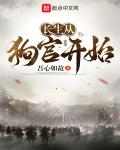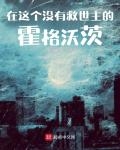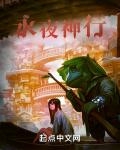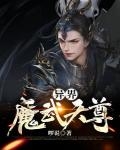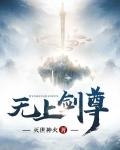Chapter 201: Changing the World! The Tide of the Times Rolls Forward!
In ancient times, the concept of nation existed, but it was not very common.
During the Southern Song Dynasty, the Han people in the north, which was occupied by the Jin Dynasty, launched an uprising against the Jin Dynasty and joined the Song Dynasty from beginning to end.
Even in the Song Dynasty, a special class was formed who were all thinking about restoring China.
The earlier distinction between Chinese and barbarians was about “those who are not of my race must have different hearts.”
Including Zhu Yuanzhang’s call: “Expel the Tartars and recover China.”
These are all precursors to nationalism.
Although most of the lower-class farmers are illiterate and do not know the difference between Chinese and barbarians, word of mouth, storytelling, opera, and teaching by example have already formed the simplest and most primitive nationalism in their minds, even if this nationalism is still very imperfect.
Perhaps these grassroots farmers may not even fully understand what ethnic group they belong to, but when bows and arrows and swords hit them, when horse manure falls on the rice fields, they must know that they are definitely not in the same group as the people on the horses!
But why do I say it is not much? The reason is very simple.
In ancient times, Japanese, Persians, and Koreans could serve as officials in the imperial court, and not just minor officials at that. This is something that is extremely difficult to imagine today.
In addition, it is still impossible for a foreign race to invade and rule China today when nationalism is emerging.
The reason for this situation is that the vast majority of civilians are illiterate, and even food and clothing are a problem. They do not have much identification with their own identity, nor do they have much pride. Therefore, they are very numb to the rule of foreign races and do not put up much resistance. They are mostly passively involved and go with the flow.
To put it bluntly.
There is not much difference between the exploitation of oneself by the masters of other tribes and the masters of one's own tribe. In such a situation, how can you expect most people to resist even at the cost of their lives, and then continue to exploit you? How can such a good thing happen?
If we want to awaken the lower-class people, make them remember the concept of nation thoroughly, and make foreign rule a thing of the past, we must be kind to them sincerely, and then continue to promote and deepen the concept of nation so that it enters everyone's heart.
Su Che commemorated the heroes and martyrs in order to lay the groundwork, plant the seeds of national concepts, and let everyone know what is right and what is worth commemorating.
The most important affairs of a state are sacrifices and war.
Using sacrifice to change ideology is the simplest and most direct method.
However, this alone is not enough.
It also requires repeated publicity and teaching over time.
In addition, we must make people live better and let them have a sense of identity and belonging to their own nation.
Only in this way can the concept of nation be deepened.
Su Che is working on this matter.
That's what the Single Whip Law and financial reform are like.
With the deepening of the Single Whip Law, the Ming Dynasty's treasure notes have completely become currency, rather than a tool for harvesting leeks.
As the credibility of Baochao continues to increase and reaches an unprecedented level, it means that further operations can be carried out, such as releasing a certain scale of money.
The so-called money printing means that the central government prints more money.
This is the same thing that Zhu Yuanzhang did before, which was to cut leeks, but there are some differences.
In the past, Zhu Yuanzhang was a man who exhausted all his resources.
What Su Che is going to do is to sustainably exhaust all resources.
There is an essential difference between the two.
Although sustainable overfishing is somewhat inhumane, it still has positive effects overall.
As long as there is an appropriate amount of water released, it can directly stimulate the economy, promote development and create a positive cycle.
The principle is also very simple.
When a currency is widely recognized and money is continuously printed, people will have more money in their hands and will be more willing to consume and invest, so the economy will be boosted.
Although continued monetary easing will allow the economy to take off and prosper, there will also be some negative effects.
For example, the financial crisis and the Great Depression.
These risks can have serious consequences.
But in the final analysis, as long as the benefits outweigh the disadvantages , there is no problem.
In a blink of an eye, a few days later.
With the support of Nan Kong Wenxuan Gong, Su Che implemented his own policies related to the concept of nation and taught the people to understand "what is nation".
He began to leave the mark of a nation.
This matter will definitely not have much effect in the initial stage, but as long as it continues, day by day, it will eventually form the mark of a nation!
This matter was not obstructed and the relevant policies were easily implemented.
The reason is very simple. Neither Duke Wenxuan Kong Xilu nor the court ministers realized the importance of this matter. They didn't think it was a big deal. Since the emperor wanted to do it, there was no need to stop it.
Time flies, and years pass by like water quietly.
In the blink of an eye, half a year passed.
During the past six months, Su Che has been waiting for an opportunity, and he has tested and achieved many results.
Su Che implemented his new policy on a small scale to see the results of the experiment and then decide whether to implement it based on the results.
The results were very good, which made Su Che feel relieved.
Now that the time was ripe, Su Che did not hesitate and began drastic reforms again.
The preliminary preparations and tests have been done to the utmost - in this case, the time has come to change the world!
As the first reform, Su Che went a step further in the reform of the Single Whip System and directly carried out land reform.
He rented large amounts of government land to farmers at relatively low prices and allowed the farmers to cultivate the land themselves.
Re-establish the ownership of the land in the military settlements and relatively guarantee the status of the soldiers in the military settlements.
The so-called official settlements were to ask farmers to cultivate the land and make them tenants of official fields.
But now these lands are leased to farmers.
This may seem like no difference, but the essence is completely different.
The tenants made very little profit and could only make enough to feed themselves.
As for military settlements, tenants were treated as soldiers and were required to undergo military training during their spare time from farming. The livelihood of the entire military settlement family mainly depended on the income from the grain settlements.
This system saves money on the military.
As early as the Three Kingdoms period, Cao Cao and Zhuge Liang used this method to manage the army, reducing the pressure of war on civilians.
At the beginning of the Ming Dynasty, decades of war and various natural disasters led to the migration of northern residents to the south, the population in the north dropped sharply, and large tracts of farmland were abandoned .
Although Zhu Yuanzhang ousted the rulers of the Yuan Dynasty, there were still many remnants of the Yuan Dynasty who coveted the Ming Dynasty's power.
If it is not cleaned up thoroughly, the consequences will be disastrous.
Therefore, while the Ming Dynasty was waging foreign wars, it also adopted the method of "farming and raising soldiers" to conduct military training.
The military farming system was very effective. Not only did the imperial court not need to provide food to the troops on the border, but the troops on the border, after feeding hundreds of thousands of soldiers, had surplus food to pay taxes to the imperial court.
This is the scene in the early Ming Dynasty.
As time goes by, many problems will be exposed, and the subsequent rulers have no way to change the system, which also leads to many problems.
When Zhu Yuanzhang was still alive, he killed many people, and the number of corrupt officials decreased relatively much.
But after his death, corruption became rampant again.
During the Yongle period, a situation arose in the border areas: the border commanders forced the soldiers to do menial tasks for them, made them their servants and tenants, and even slowly annexed the land of these military households.
In addition, ministers in the court bought land for themselves on the border and then asked the border troops to farm the land for them.
And this is not an isolated case, the situation will get worse as time goes by.
This directly led to fewer and fewer people farming for the court in the border areas, and less and less taxes could be paid to the court. The defending soldiers were also exhausted, no longer trained, and lost their combat effectiveness.
The collapse of the military farming system was exactly the same as the collapse of the military garrison system in the Tang Dynasty. This also accelerated the demise of the Ming Dynasty and led to foreign invasions.
Since Su Che knew about this loophole, he certainly couldn't just leave it alone. He directly carried out reforms, determined the ownership of military settlements, and at the same time relatively improved the status of military households and protected their rights with Ming Dynasty laws.
Although this reform cannot completely prevent these military garrison soldiers from being used as menial workers, it will at least slow down the deterioration of the situation.
In addition to land reform.
Su Che also carried out reforms of the state-run economy.
The current state-owned enterprises use the old management system, and the bureaucratic system will gradually lead to losses.
To put it bluntly, even if employees do not treat the government's money as money, bureaucrats will still engage in corruption to a certain extent. After all, it is the court's money. You are corrupt a little, I am corrupt a little, but we can never corrupt enough.
Because of continued losses.
This will result in the state-owned enterprises being unable to compete with the private enterprises, and gradually, the state-owned enterprises will be completely eliminated.
In the middle of the Ming Dynasty, whether it was iron, shipbuilding, architecture, silk, textiles, porcelain, printing, etc., China was far ahead of the world, with its output accounting for more than two-thirds of the world's total, which was much higher than the proportion of agricultural output in the world.
During the Ming Dynasty, the private handicraft industry continued to grow, but the government-run industry continued to shrink.
Knowing this history, Su Che did not hesitate and directly carried out state-run reforms. The operation was also very simple. He introduced market-oriented operations, implemented a shareholding system, and improved the efficiency of each state-owned workshop.
As a result, a number of government-private joint-venture handicraft workshops came into being. The shareholding reform increased production enthusiasm and greatly stimulated economic development.
In addition to economic reforms, Su Che also took advantage of the opportunity to usher in the Age of Discovery, opened up the Maritime Silk Road, and made it a national policy.
Zhu Yuanzhang's authority cannot be compared with Zhu Di's. There is absolutely no comparison.
Zhu Di sent Zheng He to the Western Ocean, and all the money he earned went into his own treasury, which made many officials jealous, so they forced the voyage to be stopped.
After the death of Emperor Chengzu Zhu Di, the voyages to the West were stopped during the reign of Emperor Renzong of the Ming Dynasty. The eighth voyage was carried out during the reign of Emperor Xuanzong of the Ming Dynasty Zhu Zhanji, but it was terminated because the ministers believed that it was a waste of money and time. After that, the Ming Dynasty actually closed its doors to the outside world, and the money from the voyages to the West completely went into the private pockets of the scholar-officials.
Unlike Zhu Di, Su Che divided up a little of the cake and brought everyone to play together, which also attracted more supporters.
In addition to land reform, economic reform, and sea opening policy, Su Che also carried out reforms in education.
Su Che spent the printed banknotes lavishly. He began to implement compulsory education, set up schools on a large scale, and popularized literacy among the people.
In addition, half a year has passed, and the Military Academy, Agricultural College, Medical College, and Mathematics College have also developed to a certain extent. Su Che took the opportunity to encourage the opening of various colleges to further expand the scope of these higher colleges.
It was fine to promote private schools and popularize literacy, but when Su Che promoted higher education colleges, he immediately encountered certain resistance.
The literati in this world are, after all, Confucian literati.
but.
Unlike the last time, this time, Confucius' 56th generation descendant, Duke Wenxuan Kong Xilu, directly stood up to support the court.
At first, a great scholar sought help from Kong Xilu, hoping that he could advise Your Majesty not to discourage the scholars of the world.
Faced with this life-threatening question, Kong Xilu replied: "Confucius said: When three people walk together, there must be one who can be my teacher. I will choose the good ones and follow them, and change the bad ones. Now that Your Majesty has changed to promote various studies, this is a great thing. We should follow and improve ourselves. How can we stop opposition? This is not right!"
"Are Confucians so short-sighted and selfish?"
When a descendant of Confucius who had the final right to interpret Confucius stood up for the court, the effect was very terrifying. These academies no longer encountered much resistance and were implemented smoothly.
But Su Che's reforms did not stop there. Since he wanted to reform, he would change the world thoroughly and give him a bright and clear sky.
Su Che's ultimate reform goal is government reform.
Su Che established a new public management system, simplified various policies, delegated power to a certain extent, and strengthened relevant management and supervision. There is no doubt that this greatly improved the operating efficiency of counties.
These days, reform policies are issued almost every other day.
The ministers who had lived in peace for half a year thought that everything would continue to be peaceful. However, when the wave of reform came, all the ministers were forced to be involved!
Everyone is very busy.
These policies are brief though.
But even if you take any one of them individually, they are all earth-shaking policies that will have a huge impact and are by no means easy government affairs to accomplish.
In order to ensure the smooth progress of these government affairs, all the ministers worked hard and basically worked overtime until late at night every day, which made them exhausted.
Of course, there are also some stubborn and short-sighted guys who think that such reforms are not a good thing and they come out again and again to advise against it.
It would be fine if it happened once or twice, but when it happened for the third time, Su Che directly dismissed him from his post and demoted him to a low position. He was told to go to the grassroots level and experience the suffering of the people first before he could say these sarcastic words!
Su Che's attitude was very clear.
The tide of the times is rolling forward, and everyone should follow the trend. Those who try to block the tide will never have a good end!
Even with the assistance of the cabinet, Su Che was still busy with various government affairs all day long.
but.
Unlike before, Su Che now enjoyed these government affairs. He could see that a vast empire was gradually changing as his policies were implemented!
It feels really good.

